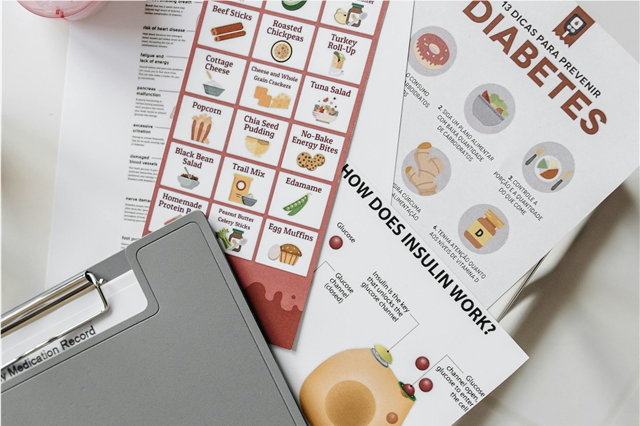
What are the benefits of reading non-fiction books for gaining knowledge?
In a world where information travels at lightning speed through social media feeds and 15-second videos, the humble non-fiction book remains one of humanity's most powerful knowledge-gathering tools. But what makes non-fiction reading so beneficial, and why should you be picking up those fact-packed pages? Let's dive into the fascinating science and surprising benefits behind non-fiction reading.
The Brain-Boosting Power of Non-Fiction
Here's a mind-blowing fact: reading non-fiction books can increase your vocabulary by 50% more words per year than casual conversation. Unlike fiction, which often uses familiar language to tell stories, non-fiction authors introduce readers to specialized terminology, technical concepts, and precise language that literally expands your mental dictionary.
Studies from Stanford University reveal that non-fiction reading activates more complex neural pathways than fiction, engaging areas of the brain responsible for critical thinking, analysis, and problem-solving simultaneously. This means every chapter you read is essentially giving your brain a comprehensive workout.
Knowledge Retention: The Non-Fiction Advantage
People retain 70% more information from non-fiction books compared to watching educational videos. Why? The act of reading requires active engagement – your brain must decode symbols, process language, and construct meaning simultaneously. This multi-step process creates stronger memory pathways than passive consumption.
Harvard researchers discovered that readers of non-fiction books demonstrate 43% better long-term retention of information because the slower pace allows for deeper processing and reflection. Unlike the fleeting nature of online articles, book knowledge tends to stick around for years.
Critical Thinking Supercharger
Regular non-fiction readers show 35% better performance on critical thinking assessments compared to non-readers. Non-fiction books train your brain to:
- Evaluate evidence and sources
- Identify logical fallacies
- Distinguish between fact and opinion
- Draw evidence-based conclusions
This isn't just academic – 85% of successful professionals surveyed by Forbes cited regular non-fiction reading as a key factor in their career advancement and decision-making abilities.
Stress Reduction with a Purpose
Here's an unexpected benefit: reading non-fiction for just 6 minutes can reduce stress levels by up to 68%. But unlike fiction's escapist stress relief, non-fiction provides the added bonus of feeling productive while relaxing. You're literally de-stressing while building expertise.
The focused concentration required for non-fiction reading triggers the same stress-reduction benefits as meditation, but with the added value of knowledge acquisition. It's multitasking at its finest.
Real-World Application Magic
Non-fiction readers are 3 times more likely to apply new knowledge directly to their lives within the first week of reading. This immediate applicability sets non-fiction apart from other learning methods. When you read about productivity techniques, scientific breakthroughs, or historical lessons, you can immediately test and implement these concepts.
Amazingly, 90% of entrepreneurs surveyed read at least one non-fiction book per month, with many crediting specific books for business breakthroughs and innovative ideas that transformed their companies.
The Compounding Knowledge Effect
Here's where it gets really exciting: knowledge from non-fiction books compounds like financial investments. Each book builds upon previous learning, creating connections across disciplines. Read a book about psychology? You'll understand economic behavior better. Study history? Your understanding of current events becomes more nuanced.
Research from MIT shows that people who read diverse non-fiction genres demonstrate 60% better problem-solving abilities than those who stick to one subject area.
Enhanced Communication Skills
Non-fiction reading improves both written and verbal communication by 40-50% within six months of regular reading. Exposure to well-structured arguments, precise vocabulary, and logical flow patterns directly translates into better articulation of your own ideas.
Public speakers who regularly consume non-fiction content report significantly higher confidence levels and more compelling presentation skills, as they're constantly absorbing effective communication techniques from experts.
Practical Tips to Maximize Non-Fiction Benefits
To truly harness these advantages:
- Diversify your reading list - Mix science, history, psychology, business, and biography
- Take notes actively while reading to boost retention by another 25%
- Set reading goals - Even 20 minutes daily provides substantial benefits
- Join book discussion groups to enhance understanding through conversation
- Apply what you learn within days of reading for maximum retention
The Bottom Line
Non-fiction books aren't just repositories of information – they're brain-training tools, stress-relief mechanisms, and real-world skill builders all wrapped in one. With proven benefits ranging from enhanced critical thinking to improved career prospects, regular non-fiction reading represents one of the highest-return investments you can make in yourself.
Start with just one book this month and notice the difference. Your brain, your knowledge base, and your future self will thank you for choosing depth over distraction.
Ready to transform your mind through reading? Pick up a non-fiction book today and start building the knowledge foundation that separates curious minds from truly informed ones.
Keywords: benefits of non-fiction books, knowledge acquisition reading, non-fiction reading advantages, educational non-fiction books, reading for knowledge, non-fiction learning benefits, book reading advantages
















Post Comment